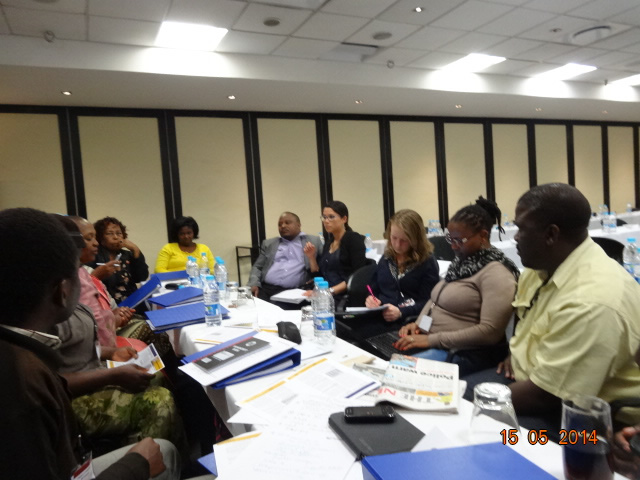Harnessing the SADC Regional Agricultural Policy (RAP) Through Smallholder Agriculture

23/09/2014
Over 60 participants (including female farmers, agricultural social movements, CSOs, NGOs, trade unions, academia, agricultural research institutions, agricultural development experts and practitioners) from across the SADC member states as well as representatives from ESAFF HQ, ESAFF RSA, ESAFF Lesotho, SACAU and CSOs (SADC CNGO, NASFAM, Malawi CISANET, Rural Women Assembly (Zambia, Lesotho, Zimbabwe), SATUCC (Trade Union) and Oxfam RSA met in Johannesburg, South African during the SADC Regional Agriculture Policy (RAP) Result Framework Meeting.
The meeting sought to, among other things, inform and consult with key stakeholders on the draft RAP Results Framework; interrogate and validate proposed outcomes of the RAP Results Framework; identify and quantify outputs and related targets for the RAP Results Framework; and identify and outline the roles and responsibilities of actors in the implementation of the RAP.
The SADC RAP Key Result Areas are Increased Agricultural Production and Productivity and Competitiveness; Increased Access to Markets and Trade; Increased Investments and access to finance in and for agriculture; Reduced Social Vulnerability and Resilience Building and Food and Nutrition Security Policies and Governance.
Participants at the meeting noted that among other challenges, small scale farmers faced limited access to finance and productive resources, lack of government support and were vulnerable to risks of climate change. The issue of technological advancement within the agricultural sector was also noted. Participants made a call towards the strengthening of SADC member states land reform policies so that the rights of women, youth and small holder farmers are secure. Governments were also urged to improve infrastructure development for agriculture including rural road networks, ICT technologies, power generation and supply.
On the issue of agriculture financing, participants called on SADC member states to formulate agriculture finance policies that promote women empowerment, affordability and improved access. While applauding the SADC Protocol on Trade, participants encouraged the formulation of more specific interventions targeting smallholder agriculture. They urged SADC to review existing competition policies in the region and to work towards the establishment of a regional competition policy institution that regulates and monitors cross-border cartels, regional monopolies and monitor other market irregularities;
The meeting culminated in the production of a policy brief which sought to highlight the challenges that small scale farmers face as well as offer recommendations. Participants reiterated the need for Member States to work towards institutionalizing the participation of key non-state agricultural stakeholders, especially youth, women and smallholder farmers in policy processes at the national and regional level.






















